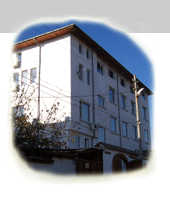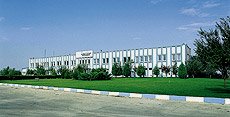Knitting pretty from The Economist
The clothing business is flourishing despite Chinese competition
THE garment trade in Bangladesh, as in many poor countries, sprang up solely because of preferential access to important markets such as the European Union (EU) and America. So when the rules governing exports to rich countries were changed at the beginning of 2005, Bangladeshis feared huge job losses. Once the quotas that had guaranteed a share of the market to all exporting countries were abolished, they assumed, China would hoover up all the jobs in the industry.
Yet Bangladesh's garment exports are booming. Last year, it sent clothes worth $8.9 billion to rich countries. Revenues from the garment trade account for about 80% of all exports and are double the remittances sent home by Bangladeshis working overseas—the economy's other pillar. The country has made use of its labour, its only abundant resource. Wages are lower than in China, India, Cambodia or Vietnam, its main competitors. About 2m people—90% of them women—work in the rag trade, and another 15m jobs depend indirectly on making clothes, through firms that produce thread, buttons and textiles. On today's trends, Bangladesh's garment exports will soon overtake those of its giant neighbour, India.
Cheap labour, along with a reluctance among buyers to rely on China for all their purchases, appears to have won the Bangladeshi industry a reprieve. But the recent growth in exports to its two biggest markets, the EU and America, has occurred since the pair imposed transitionary restrictions on Chinese exports, which end next year. Meanwhile, in Canada, the only big market that places no restrictions on China, Bangladesh has lost market share.
To reduce the risk of a similar setback in America, Bangladesh has enlisted Muhammad Yunus, its Nobel prize-winning micro-credit pioneer, to lobby for duty-free access, “to put Bangladesh on par with other least developed countries”. But bosses fear that the stricter labour standards that would accompany such a concession might outweigh the benefits. Most garment workers are not unionised, although big protests did force the government to announce a near doubling of the minimum wage to Tk1662 ($25) a month last year—the first increase since 1994.
Bangladesh is most competitive in knitwear, which has grown from 15% of its garment exports in the early 1990s to over half this year. The secret is the inputs, some three-quarters of which are made locally. That saves firms the transport and storage costs, import duties and long lead-times that come with the imported “woven” fabric used to make shirts and trousers. It also entitles them to duty-free access to the European Union. “In the long-run, the woven garment sector will probably leave Bangladesh”, says Mohammed Quasem, a knitwear tycoon whose latest factory is about to start up in the town of Gazipur with 10,000 workers.
In the short run, garment-makers of all stripes are simply trying to survive an indiscriminate anti-corruption drive launched by Bangladesh's recently installed military regime—a disadvantage for which neither low wages nor trade preferences can compensate.








Hiç yorum yok:
Yorum Gönder